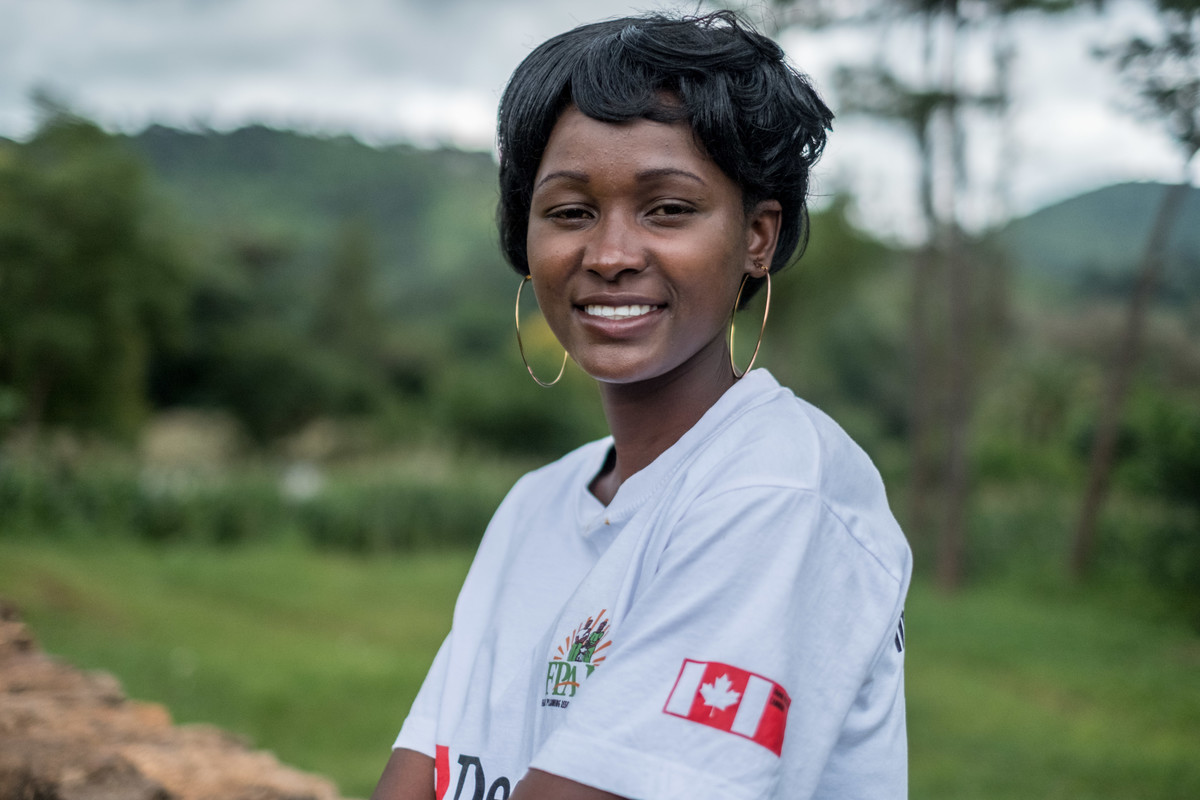The objective of the project is to build the capacity of women's movements, via sub-grants and organizational development support, especially for small organizations, often non-registered, to address and respond to gender-based violence.
Budget: 14,000 000 EUR
Donor: Agence Française de Développement (AFD)
Timeline: 4 years (Start date – Q2 of 2022)
Project implementation areas: Mexico and Columbia in Latin-America (led by MdM), Bangladesh and Sri Lanka in Asia (led by CREA) and Burkina Faso, Ethiopia, Guinea the Ivory Cost, Kenya and Mali (led by IPPFARO
Partners: IPPF ARO, Médecins du Monde(MdM), Creating Resources for Empowerment in Action (CREA), FIDH (International Federation on Human Rights) & Empow’Her.
Other interesting information: It is the first time IPPF has received direct funding from AFD, the first time we are partnering with these new consortium partners and delivering on a large global project.
The project supporting CSOs in Kenya
Youth Changers Kenya (YCK) is a community-based organization that was founded in 2015 to promote sexual reproductive health and rights and to address systemic issues of sexual violence among adolescent girls and young women from rural and peri- urban areas. YCK’s work with girls & young women strives to provide knowledge and skills necessary to pursue education, participate in policy spaces, delay pregnancy, make informed choices and build self-confidence. At the same time, YCK strategically engages with key gate keepers to build a strong collaboration aimed at developing a more equitable justice system for sexual violence against girls and women.YCK has five thematic areas of focus which include: advocacy, sexual reproductive health and rights, girls’ education, mental health, and sexual violence. While maintaining a national focus, YCK’s 2020 focus was honed in Kakamega, Kiambu and Nairobi counties, owing to the increased rates of SRHR violations in both areas. Further information about their work can be found here: Youth Changers Kenya – Youth Changers Kenya (YCK) is a community-based organization that was founded in 2015 to promote sexual reproductive health and rights and to address systemic issues of sexual violence among adolescent girls and young women from rural and peri- urban areas
Jinsiangu focuses its work on Intersex, Transgender and Gender Non-Conforming Individuals. Jinsiangu seeks to ensure that the lives and wellbeing of ITGNC persons are enhanced through the establishment of safe spaces, through advocacy and research, through the provision of information, health services, and psycho-social support, and by fostering opportunities for holistic empowerment. It is probably the FON-supported organisation in Kenya that is the strongest in terms of advocacy. FON (through our partner FIDH – Federation international des droits de l’Homme), supported Jinsiangu to attend the AU advocacy training in Arusha Tanzania last month and FON has also nominated them for CSW68, next year, because their advocacy plans include participation in this event. Website: jinsiangu , Intersex, Transgender, Gender-Non-Conforming Kenya
MaryFaith Children Center MFCC is a dedicated rescue center that has been unwavering in its commitment to providing essential support and care to sexually abused girls, many of whom have endured the trauma of incestuous relationships with relatives or close family friends. Website: Mary Faith Children Centre – Securing children from societal abuse
Smart Ladies Youth Initiative SLYI is a community-based organization that uses sports and Art as a unique tool for mobilizing girls and young women to dialogue on their Sexual Reproductive Health challenges. This unique approach has created avenues of reaching the vulnerable age and has developed trust and confidence in discussing any challenges girls and young women face. No Website.
Entashata Loita: Entashata Loita Community Based Organization (CBO) serves the Maasai pastoralist community in the arid and semi-arid lands of Loita Division in Kenya, sharing climate adaptation strategies and advocating for women and girls’ rights to education and abandonment of Female Genital Mutilation (FGM).
Kiambu Sex Workers Alliance (KIASWA): Established in 2014, the Kiambu Sex Workers Association (KIASWA) was founded by female sex workers to provide sexual and reproductive health services to Trans sex workers and female sex workers, including those using drugs, primarily in Kiambu county slums. KIASWA aims to economically empower the sex worker community in Central Kenya through initiatives such as entrepreneurship skills training, short courses, and table banking. Although its positive impact in Kiambu County was evident within six months, the challenges posed by HIV and AIDS prompted the group to seek official recognition. As one of the pioneering organizations in Central Kenya, KIASWA focuses on promoting the rights of female sex workers, adolescent girls, young women, women who have sex with women, and women who use drugs (referred to as KIASWA key populations). With a strong reputation for influencing national and local policies related to HIV prevention, care, and treatment, human rights awareness, and economic empowerment, KIASWA actively advocates for marginalized groups, aiming to reduce stigma and discrimination. The organization's goal is to influence policy and improve access to high-quality healthcare, human rights education, legal assistance, and economic empowerment for important populations, including female sex workers, teenage girls, and young women. Members actively participate in economic empowerment, gender and human rights awareness, HIV and AIDS prevention, treatment, care, and support, as well as advocacy. In addressing stigma and discrimination, KIASWA speaks up for marginalized groups and involves various stakeholders in advocacy and policy discussions. HOME - KIASWA (kiaswa-ke.org)















